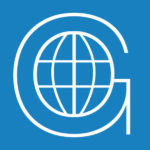 An ACCC inquiry has achieved results, after finding that for just two currencies, US dollars and UK pounds, consumers who used the big four banks to send international money transfers could have collectively saved about AUD 150 million in a single year, if they had instead used a lower priced International Money Transfer supplier.
An ACCC inquiry has achieved results, after finding that for just two currencies, US dollars and UK pounds, consumers who used the big four banks to send international money transfers could have collectively saved about AUD 150 million in a single year, if they had instead used a lower priced International Money Transfer supplier.
Most money remitters reviewed by the ACCC are now giving consumers the tools they need to easily compare the total price of international money transfers.
The ACCC recently reviewed the take-up of its best practice guidance for money remitters contained in its September 2019 Foreign currency conversion services inquiry report. The best practice guidance recommends money remitters make reliable online price calculators available to consumers and that they clearly disclose their prices, including all relevant fees.
The recent review follows an earlier assessment finalised in June 2020, which found numerous remitters lagging best practice. The latest review, however, found that 12 out of the 15 prominent remitters reviewed were either adhering to best practice price disclosure or needed to make only minor improvements to achieve best practice.
“We were pleased to see the improvement in price transparency across the money remittance sector that has occurred following the release of our 2019 report,” ACCC Chair Rod Sims said.
The upfront disclosure of relevant fees and wider availability of customisable online price calculators were among the major improvements identified by the ACCC in its latest review.
“This improvement is good news for the many consumers across Australia who transfer money overseas, who are now able to seek out more easily the best deal and potentially save significant amounts of money,” Sims said.
The ACCC’s 2019 report found that for just two currencies, US dollars and UK pounds, individual consumers who used the big four banks to send international money transfers could have collectively saved about AUD150 million in 2017-18 if they had instead used a lower priced International Money Transfer supplier.
Despite the broad improvement observed by the ACCC, three remitters were identified as falling short of best practice.
“Three remitters continued to provide inadequate transparency to their customers by only partially disclosing their fees, having unduly complex prices or lacking a customisable online price calculator,” Sims said.
The ACCC has written to all three of these remitters to point out where they are falling short of best practice and expects to have continued engagement on this issue with each remitter.
“We want to see all money remitters lift their game so that consumers can benefit from greater price transparency and ultimately, competition,” Sims added.
“If we find that money remitters backtrack or do not implement best practice, we will work with the Government on further measures to ensure there is appropriate transparency for consumers.”
International money transfers are regularly used by large cross section of consumers, including those seeking to send money to family and friends overseas to help them deal with hardship arising from COVID-19.
The 2019 report also included best practice guidance on price disclosure for businesses selling foreign cash to travellers and other consumers. The ACCC has deferred engagement with these businesses until after the COVID-19 international travel restrictions are lifted; noting a number of these suppliers have currently ceased operations.
Background
On 2 October 2018, the Treasurer approved the ACCC holding an inquiry into the supply of FX services in Australia. On the same day, the ACCC released an issues paper for the inquiry.
The final report for the inquiry was released on 2 September 2019 and focused primarily on International Money Transfer (IMT) suppliers. IMTs are significant for a number of reasons including:
- prices in Australia are high by global standards and IMTs are a significant outlay for Australians with an estimated AUD21 billion in personal IMTs sent from Australia each year
- IMTs are regularly used by groups of potentially vulnerable and disadvantaged consumers such as migrants and temporary workers
- the average transaction size for IMTs is much larger than the other services considered in the inquiry.
The ACCC last reported on better access to tools to compare foreign exchange services, and on the uptake of its guidance on 16 June 2020.
The ACCC’s Consumer guide to FX services includes information for consumers aimed at ensuring they can get the best value for money when sending an international money transfer.
Edited by Peter Needham















